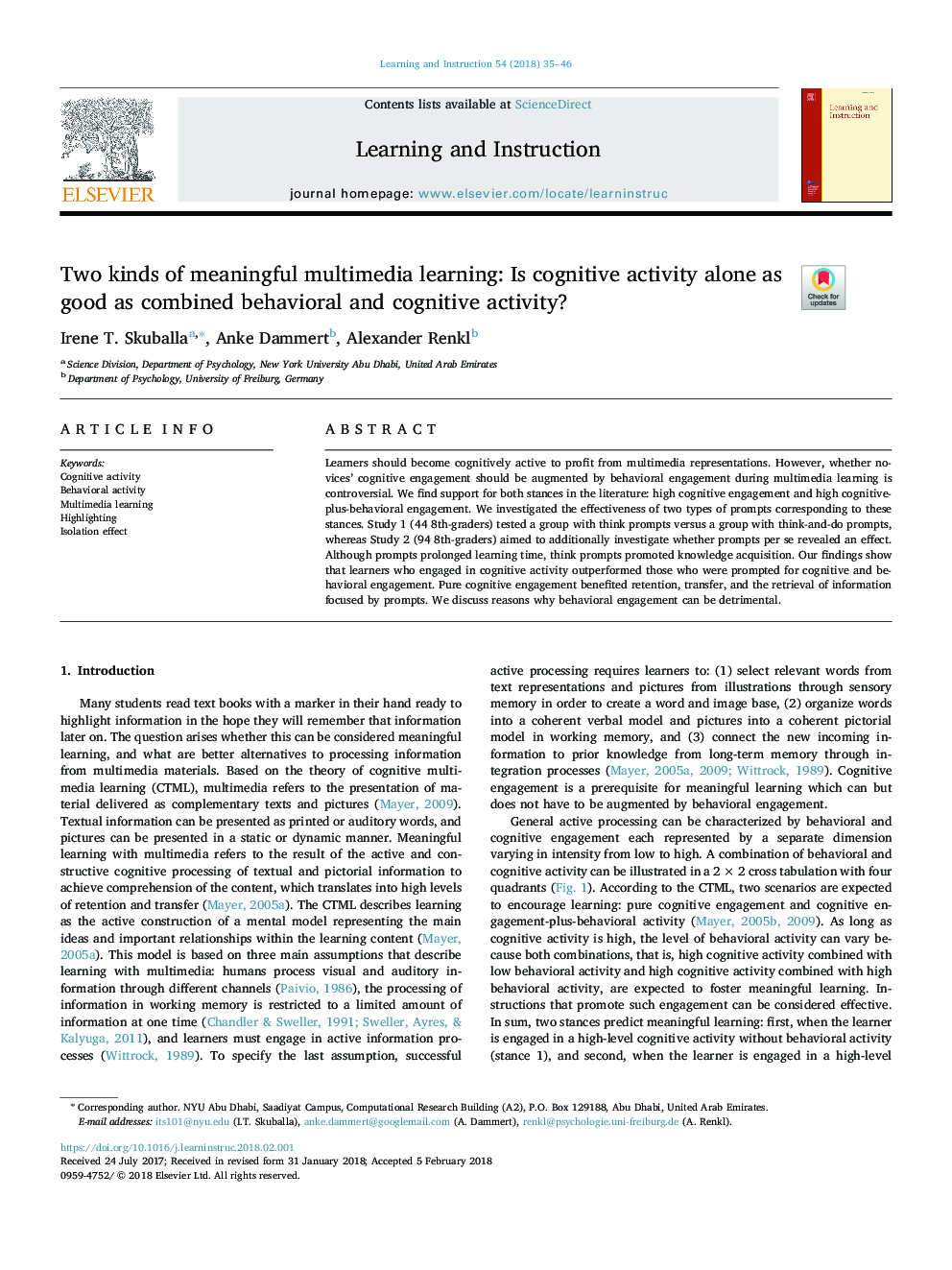| Article ID | Journal | Published Year | Pages | File Type |
|---|---|---|---|---|
| 6845632 | Learning and Instruction | 2018 | 12 Pages |
Abstract
Learners should become cognitively active to profit from multimedia representations. However, whether novices' cognitive engagement should be augmented by behavioral engagement during multimedia learning is controversial. We find support for both stances in the literature: high cognitive engagement and high cognitive-plus-behavioral engagement. We investigated the effectiveness of two types of prompts corresponding to these stances. Study 1 (44 8th-graders) tested a group with think prompts versus a group with think-and-do prompts, whereas Study 2 (94 8th-graders) aimed to additionally investigate whether prompts per se revealed an effect. Although prompts prolonged learning time, think prompts promoted knowledge acquisition. Our findings show that learners who engaged in cognitive activity outperformed those who were prompted for cognitive and behavioral engagement. Pure cognitive engagement benefited retention, transfer, and the retrieval of information focused by prompts. We discuss reasons why behavioral engagement can be detrimental.
Related Topics
Social Sciences and Humanities
Psychology
Developmental and Educational Psychology
Authors
Irene T. Skuballa, Anke Dammert, Alexander Renkl,
